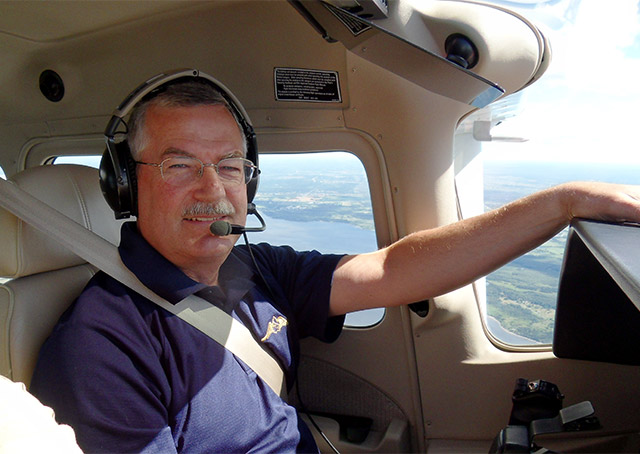Canadian Owners and Pilots Association president to retire
Psutka reflects on 18 years, challenges ahead

Canadian Owners and Pilots Association President Kevin Psutka is preparing to depart the organization in 2015 after 18 years on the job, a tenure that saw Psutka lead the organization’s response to many changes and earned him high praise from general aviation advocates. Psutka informed COPA directors recently of his decision, triggering a succession plan. Psutka will remain at his post until a successor is in place, and up to speed.
“Kevin’s extraordinary vision and leadership guided COPA through times of tremendous change,” said Trekker Armstrong, chairman of COPA’s Board of Directors, in a news release.
Psutka has maintained close ties with AOPA President Mark Baker, cooperating on trans-border issues and continuing the mutually supportive relationship between the organizations. (The organizations offer mutual assistance and services to members of both groups.)
“Kevin has been a strong advocate for Canada’s pilots and aircraft owners, and an important ally on cross-border and international issues that affect us all,” said Baker. “We wish him well as he moves to the next chapter of his life and look forward to continuing a strong collaborative relationship with his successor.”
Psutka began his long tenure on the COPA staff in 1996 as executive vice president, and was subsequently named president and CEO, having already served the aviation industry in various roles in and out of government, according to a summary of his career on the COPA website. He logged 1,800 hours flying helicopters for the Canadian Forces Air Reserve, and has flown more than 5,000 hours in all—many of those hours crisscrossing Canada to make appearances at aviation events and meet members.
“My greatest enjoyment has been flying around the country visiting members and sharing their joy of flying,” Psutka wrote in a Nov. 27 letter to COPA membership. “COPA’s role through all of these major shifts was and still is to remind the government and industry that they must accommodate our sector of aviation, which in terms of number of pilots and aircraft remains by far the largest sector.”
COPA has about 35,000 members, Psutka noted in his letter to them, representing about half of Canada’s general aviation pilots; several other organizations represent smaller segments of the GA community, but “there remains a large chunk of people out there who are members of no organization.” Psutka wrote that the proliferation of organizations causes confusion, and that remains a challenge.
“I believe that the need for unified voice remains as important now as it was when I came on board,” Psutka wrote.
He also reflected on success, noting that general aviation has survived privatization of the air navigation system under Nav Canada.
“The provisions of the Act to protect our sector were nebulous at best (“charges in respect of recreational and private aircraft must not be unreasonable or undue”) but through negotiation over the years, we have managed to keep the charges in check for the most part,” Psutka wrote. “The patchwork of Flight Service Stations has been reorganized into centralized Flight Information Centres, which … is in most respects far better than its predecessor.”
Psutka has been an active advocate internationally, serving as a vice president of the International Council of Aircraft Owner and Pilot Associations (IAOPA) and engaging international and national regulators on many issues important to GA pilots.
“We wish Kevin well and thank him for his tireless commitment to general aviation worldwide and to the mission of IAOPA,” said IAOPA Secretary General Craig Spence. “Kevin has had a dramatic impact on preserving the freedom to fly, not only in Canada but around the globe.”



